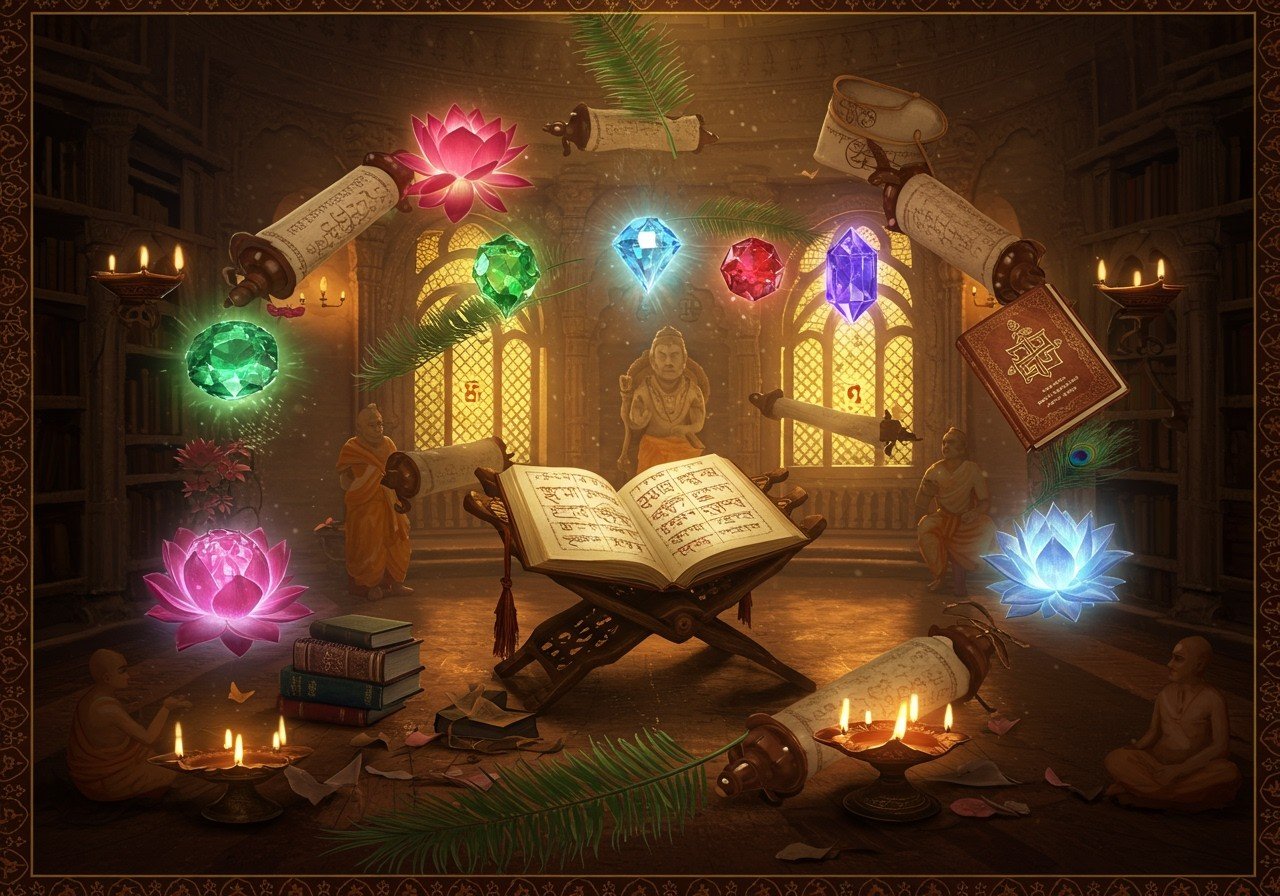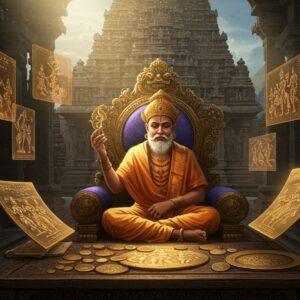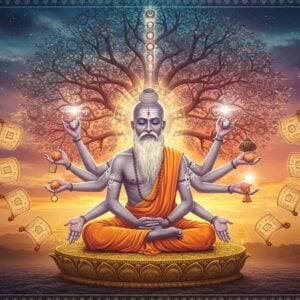Exploring the profound world of Hindu scriptures

Hindu scriptures are a vast and ancient collection of religious writings and oral traditions, exploring profound truths about existence. Hindus believe that some of these were divinely revealed and realized by ancient sages through deep meditation, passing them down through generations orally and later in written form. These sacred texts, including the Vedas, Upanishads, Agamas, and Puranas, provide a framework for Hindu philosophy, rituals, and daily life.
Categories of Hindu Scriptures
Hindu scriptures are broadly classified into two main categories: Shruti and Smriti.
- Shruti (Heard): Shruti scriptures are considered the most authoritative and are believed to be divine revelations, similar to natural law. Hindus believe that ancient sages realized these eternal truths through deep meditation and then transmitted them orally. Shruti texts include the Vedas, Upanishads, and Aranyakas, which are considered the foundation of Hindu thought and practice.
- Smriti (Remembered): Smriti scriptures are human-authored texts and are generally considered less authoritative than Shruti. They consist of post-Vedic texts that elaborate on and interpret the Shruti scriptures. Smriti texts include epics like the Mahabharata and Ramayana, as well as legal and ethical codes. These texts adapt and evolve with time, providing practical guidance for living a righteous life according to Hindu principles.
Key Hindu Scriptures
The diversity of Hindu scriptures offers a wealth of spiritual and philosophical knowledge. Each text plays a unique role in shaping Hindu thought and practice.
- Vedas (Knowledge): The Vedas, meaning “knowledge,” are the oldest and most sacred Hindu scriptures. They are a collection of hymns, prayers, and rituals. The Vedas are divided into four parts: Rig Veda, Sama Veda, Yajur Veda, and Atharva Veda. Each Veda is further divided into Samhitas (hymns), Brahmanas (ritual manuals), Aranyakas (forest treatises), and Upanishads (philosophical texts). The Rig Veda, the oldest, contains over 10,000 mantras on various topics. Hindus consider the Vedas to be timeless revelations, neither human nor divine in origin, representing the very foundation of Hindu spiritual thought.
- Upanishads (Sitting Near): The Upanishads are philosophical texts that explore the nature of reality, the self (Atman), and the ultimate reality (Brahman). They form the concluding part of the Vedas and are revered as revealed scriptures. Prominent Upanishads include the Isa, Kena, Katha, Prasna, Mundaka, Mandukya, Aitareya, Taittiriya, Chhandogya, Brihadaranyaka, Kaushitaki, Svetasvatara, and Maitrayani Upanishads, offering profound insights into the nature of consciousness and the universe.
- Puranas (Ancient Lore): The Puranas are a vast collection of stories, legends, and myths about the history of the universe, gods, goddesses, and heroes. There are 18 Maha Puranas (Great Puranas) and 18 Upa Puranas (Minor Puranas), containing over 400,000 verses. They provide a rich tapestry of narratives that convey complex philosophical and spiritual concepts in an engaging way, making them accessible to a wider audience.
- Itihasas (History): The Itihasas are epic narratives that combine history, mythology, and philosophy. This category includes the Ramayana and Mahabharata, two of the most beloved and influential texts in Hindu culture. The Bhagavad Gita, a philosophical dialogue between Lord Krishna and Arjuna, is a part of the Mahabharata. These epics offer profound lessons on dharma, karma, and the pursuit of a meaningful life.
- Agamas (Tradition): The Agamas are a collection of scriptures primarily associated with tantric traditions within Hinduism. They focus on ritual worship, temple construction, and spiritual practices. They offer detailed instructions on how to connect with the divine through various forms of worship and meditation. They often emphasize the importance of the guru or spiritual teacher in guiding the seeker’s journey.
Hindu scriptures offer a vast repository of knowledge on diverse subjects, including the history of art, science, music, dance, sculpture, architecture, astronomy, and mathematics in India. These ancient texts provide valuable insights into the rich cultural and intellectual heritage of the Indian subcontinent, showcasing the development of various fields of knowledge over centuries.
Looking to deepen your understanding of Hindu scriptures? Poojn.in offers a wide selection of religious books and texts. Learn more about key scriptures and explore a detailed exploration of Hindu scriptures. You can also find beautiful murtis and other puja items on our website.


